FEATURES • ORGANIZATIONS
From Rivers to
Revolution: Sungai
Watch Tackling Bali's
Plastic Crisis
Words & Photography by The Punch
Bali, celebrated for its pristine beaches, vibrant culture, and warm-hearted people, faces an increasingly dire environmental threat: plastic pollution. While its natural beauty continues to attract millions of visitors each year, the reality beneath its picturesque surface presents a different story. The island’s rivers have become major conduits for plastic waste, which flows unchecked into the ocean, severely damaging marine ecosystems and polluting the shores. This pollution is more than just an environmental issue; it reflects deeper systemic problems involving waste management, public awareness, and unsustainable corporate practices.
Stepping up to face this challenge is Sungai Watch, a nonprofit organization with a clear mission: to stop plastic at its source. Founded by a dedicated sibling trio, Sungai Watch has taken a hands-on approach to intercepting plastic before it reaches the ocean. By placing floating barriers in rivers across Bali and Indonesia, they are tackling one of the biggest sources of ocean pollution–head-on. But their work goes beyond simply cleaning up; it’s about creating long-term solutions, inspiring community involvement, and rethinking the way we approach plastic waste. Sungai Watch’s efforts signal a shift in the fight against plastic pollution, one that begins with local action and aims to inspire global change.
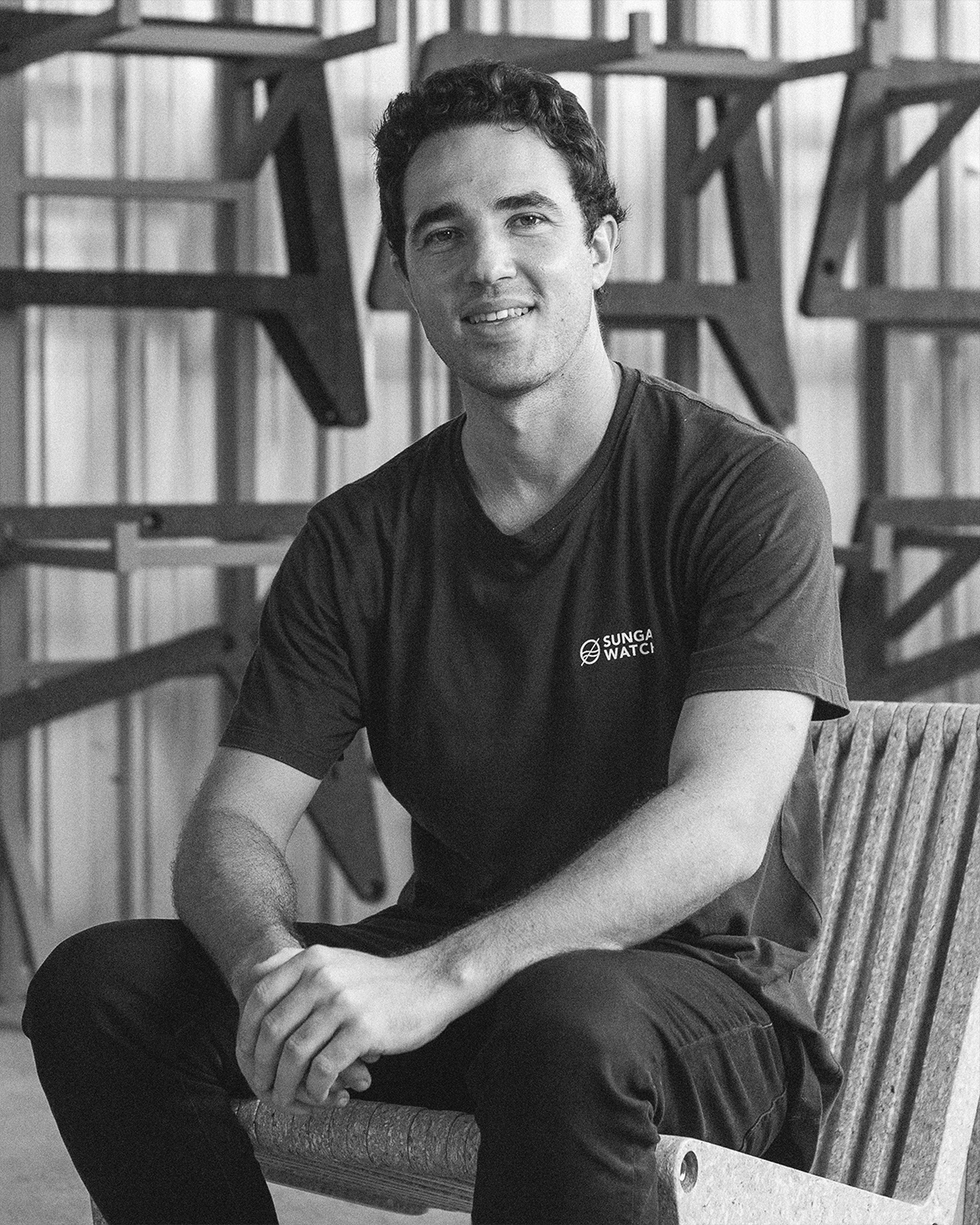
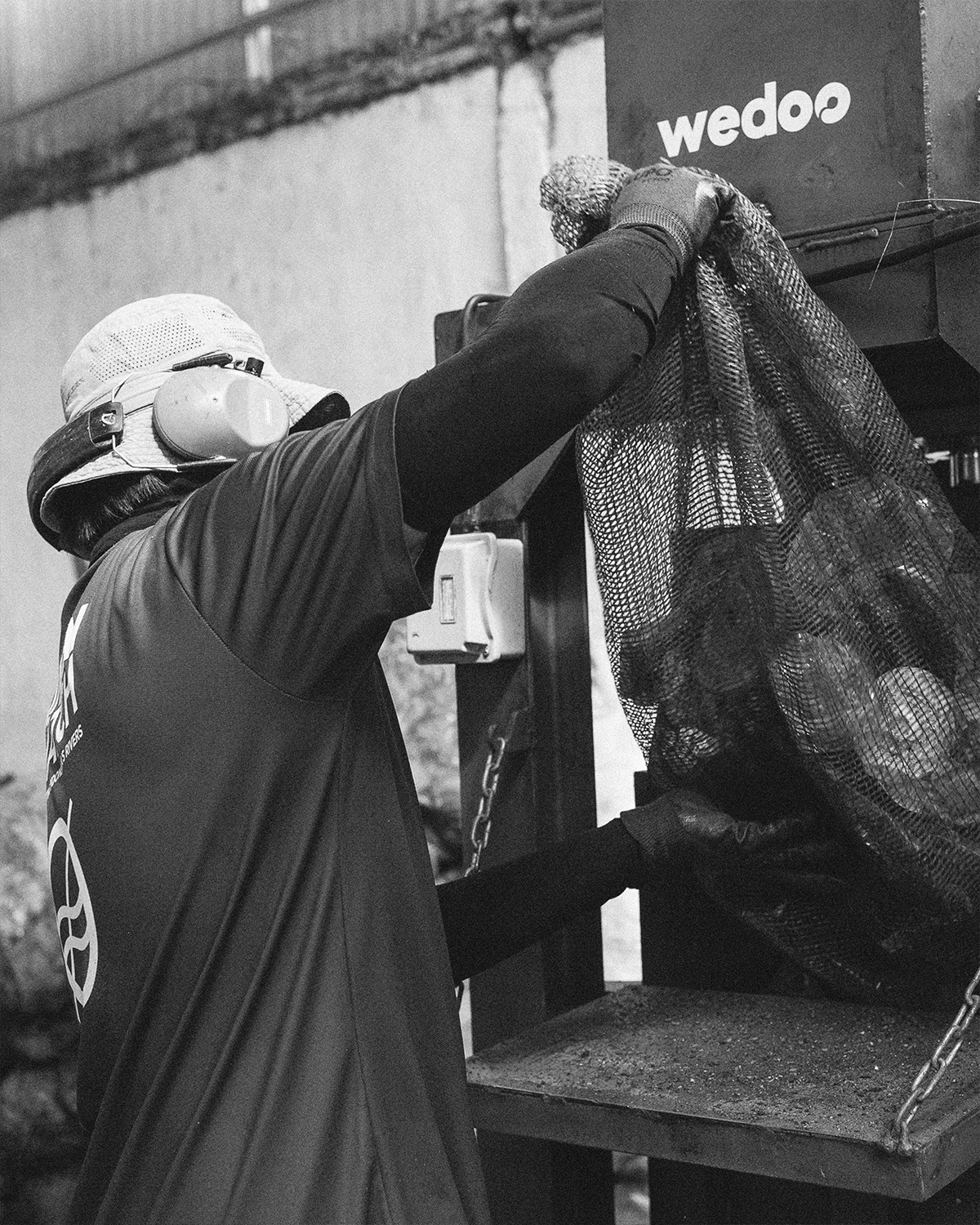
BALI'S PLASTIC SURGE
Bali faces a pressing waste crisis, generating 1.6 million tonnes of refuse each year, with 303,000 tonnes consisting of plastic. Alarmingly, more than half of this waste remains uncollected, with 33,000 tonnes slipping into the island’s waterways, fueling environmental degradation. Compounding this challenge is a significant lack of awareness–70% of Indonesians remain oblivious to the damaging effects of plastic, as revealed by a 2020 study. Corporate dependence on single-use products intensifies the urgency for sustainable practices, demanding immediate action to protect the island’s natural beauty and health.
DEVELOPMENT PRESSURES
Indonesia's waste management system reflects a government still grappling with this critical issue, with recent landfill fires, such as the one at Bali’s main landfill, exposing gaps in infrastructure. Rapid and often unregulated development further intensifies the crisis, overwhelming the island's fragile waste systems.
This waste crisis not only endangers the environment but also threatens the tourism industry and local communities, tarnishing Bali’s image as a pristine paradise. As green spaces vanish under the weight of unchecked construction, economic growth overshadows the need for environmental protection. For organizations like Sungai Watch, the scale of new developments challenges their river-cleaning efforts, highlighting the urgent need for infrastructure upgrades, public education, and more stringent regulations to preserve Bali’s natural beauty.
SIBLINGS OF CHANGE: THE SUNGAI WATCH INITIATIVE
Founded by siblings Gary, Kelly, and Sam Bencheghib, Sungai Watch is a vital force in combating Bali’s plastic crisis. Their mission starts at the rivers, where they have installed over 300 floating barriers across Indonesia, capturing waste before it has a chance to enter the ocean. With a remarkable collection of over 2.5 million kilograms of plastic so far–an ever-increasing figure–their impact is palpable. This dynamic team mixes practical action with community engagement, emphasizing the power of education and the necessity of securing government support for lasting change.
FROM TRASH TO TREND: SUNGAI DESIGN'S CLOSED-LOOP INNOVATION
Sungai Watch’s mission centers on the transformative process of cleaning rivers, reshaping the narrative of environmental responsibility. With the launch of Sungai Design, the nonprofit breathes life into low-value plastics retrieved from Bali’s waterways, crafting them into stylish, sustainable products.
One standout creation–a chair fashioned from 2,000 upcycled plastic bags–shows the potential of waste to evolve into a treasured resource. By elevating the recycling of materials like these plastic bags, which form a significant portion of river debris, Sungai Design not only reduces pollution but actively supports ongoing cleanup efforts. This approach is a closed-loop system, where materials are continually repurposed, diminishing the demand for virgin resources and reducing waste. Through these initiatives, Sungai Watch and Sungai Design reshape perceptions of our planet’s future, proving that solutions to plastic pollution can fuel both environmental conservation and economic vitality.
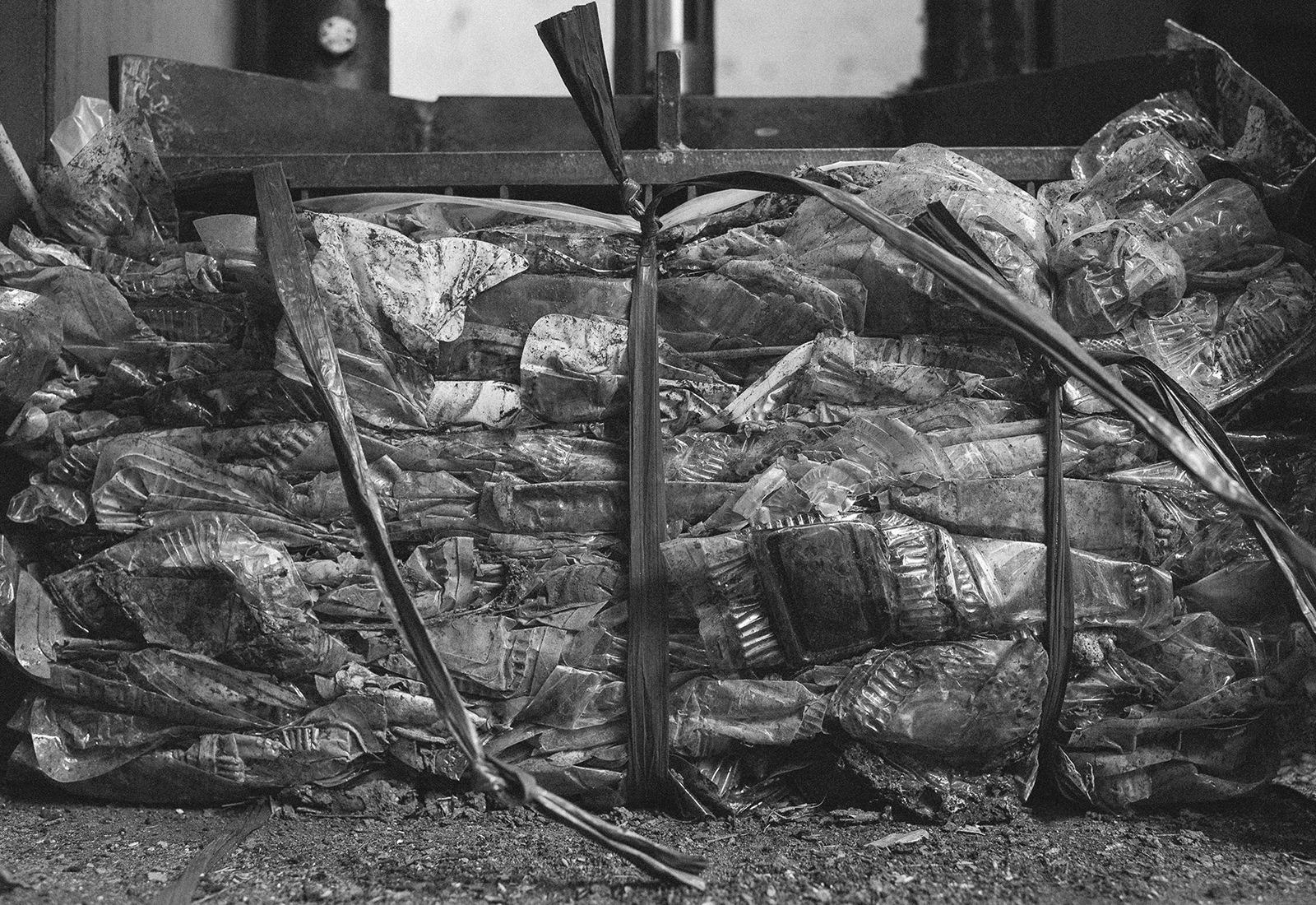
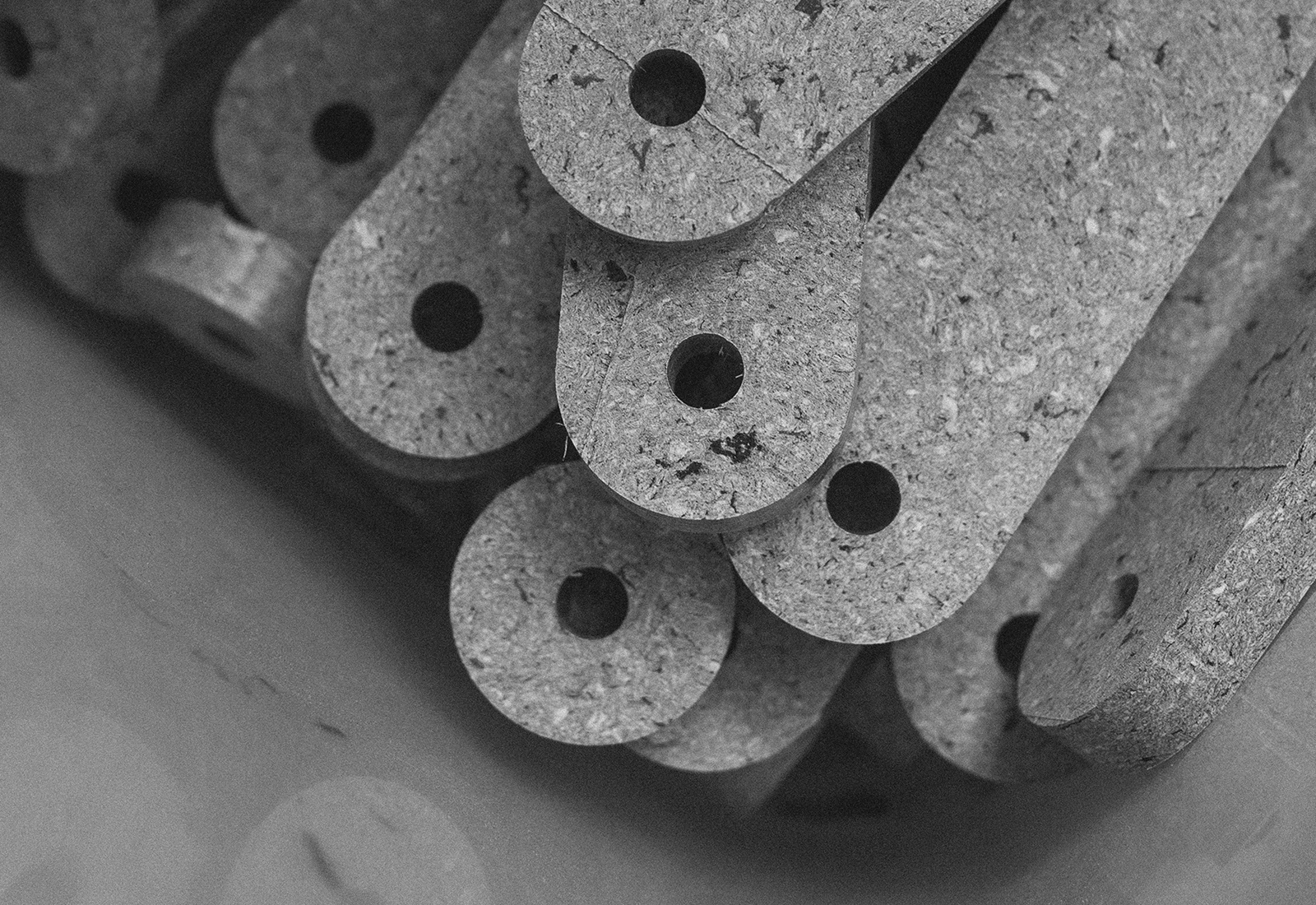
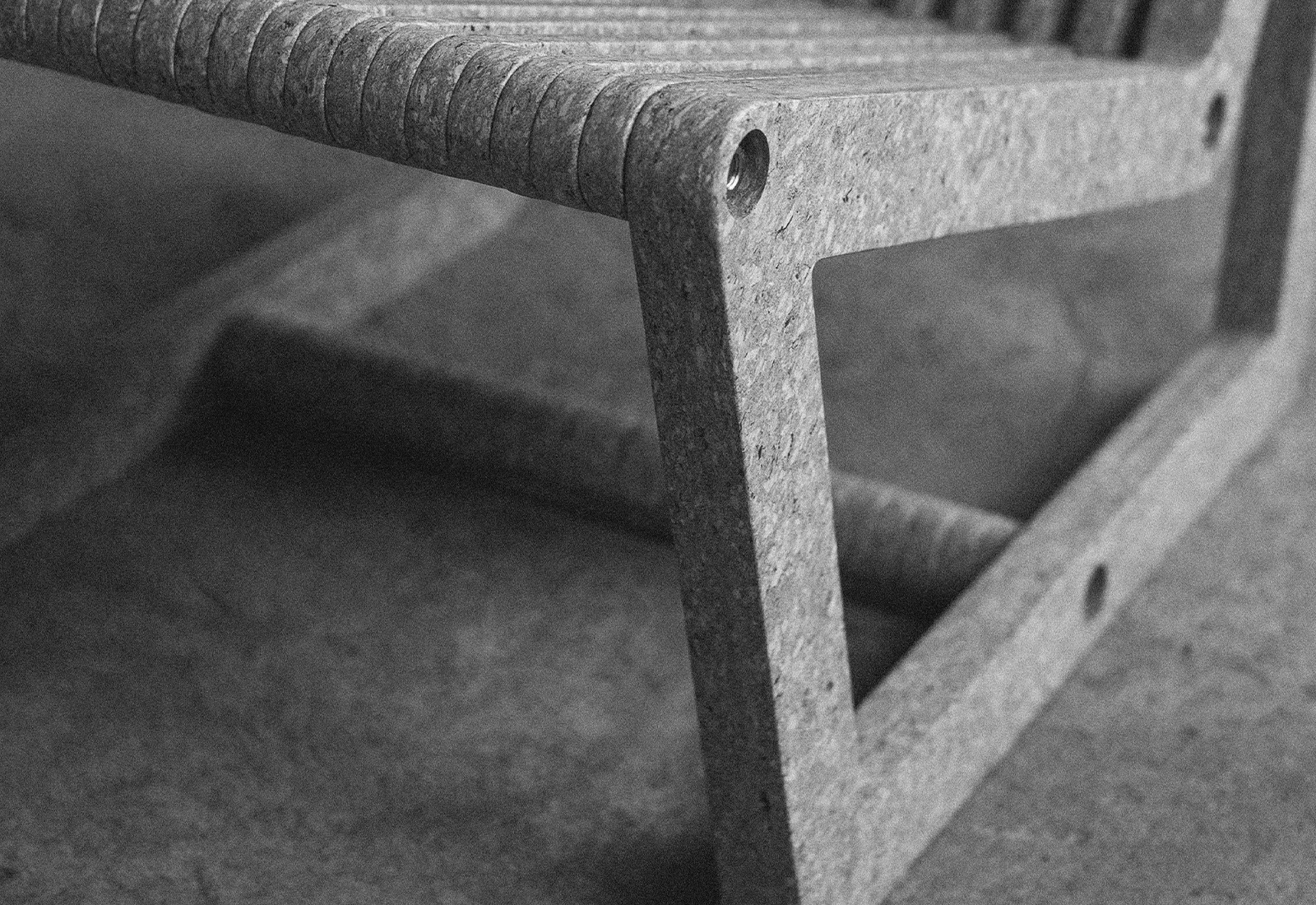
LEADING BY EXAMPLE: A GLOBAL IMPACT
Bali’s environmental challenges reflect those seen across the globe, from plastic pollution to rampant development. Yet, organizations like Sungai Watch spark hope for meaningful change. Their efforts in Bali provide a model for other regions wrestling with similar struggles, and their plans to expand into Bekasi in West Java and Sidoarjo in East Java signal the potential for far-reaching impact. By using river cleanup, sustainable design, and community engagement, Sungai Watch inspires a movement, encouraging communities worldwide to be more responsible.
TOWARDS A PLASTIC-FREE FUTURE
The ultimate goal for Sungai Watch is to make their work unnecessary–a reality where rivers flow free of plastic long after their barriers are gone. In some regions, they’ve already seen success; rivers cleaned years ago still maintain their cleanliness. With continued government support and community-led initiatives to cut back on single-use plastics, this dream of a plastic-free future grows closer. If Bali, despite its challenges, can lead the way, it offers the world a compelling example to embrace.
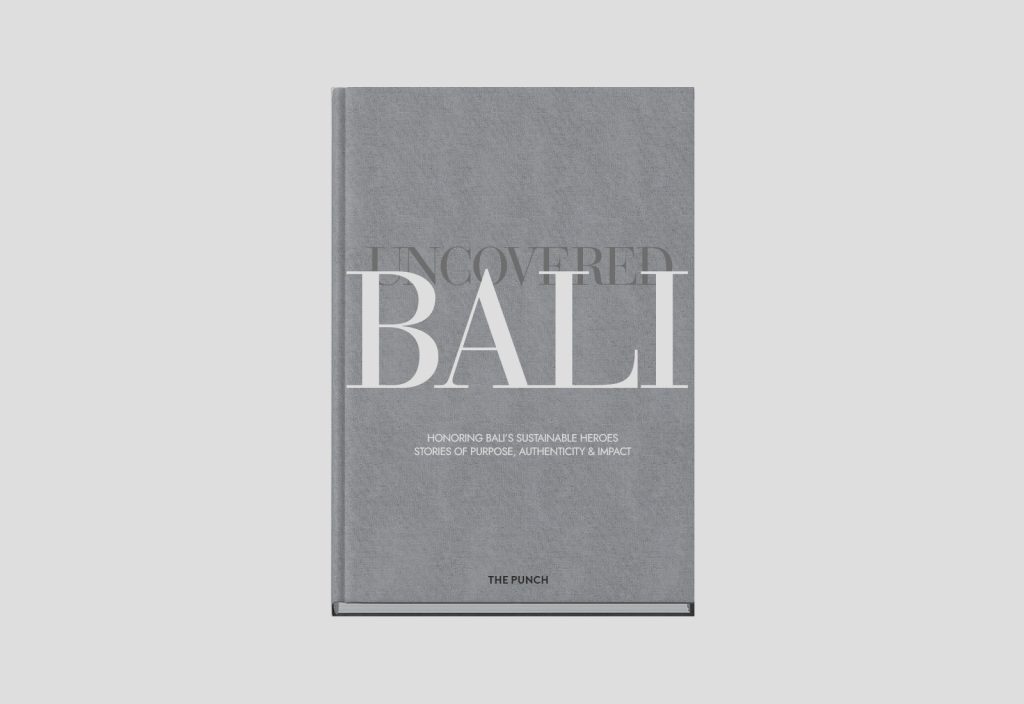
EXPLORE THE FULL STORY IN UNCOVERED BALI BOOK
Uncovered Bali is a collective project showcasing the sustainable journeys of carefully selected Bali businesses to a global audience. Each story highlights the unique impact these enterprises have on preserving Bali’s cultural and environmental heritage while driving positive change. Through this project, we aim to inspire global leaders, travelers, and communities to embrace more sustainable practices and appreciate the powerful role that local businesses play in shaping a better future.
EXPLORE THE PUNCH

